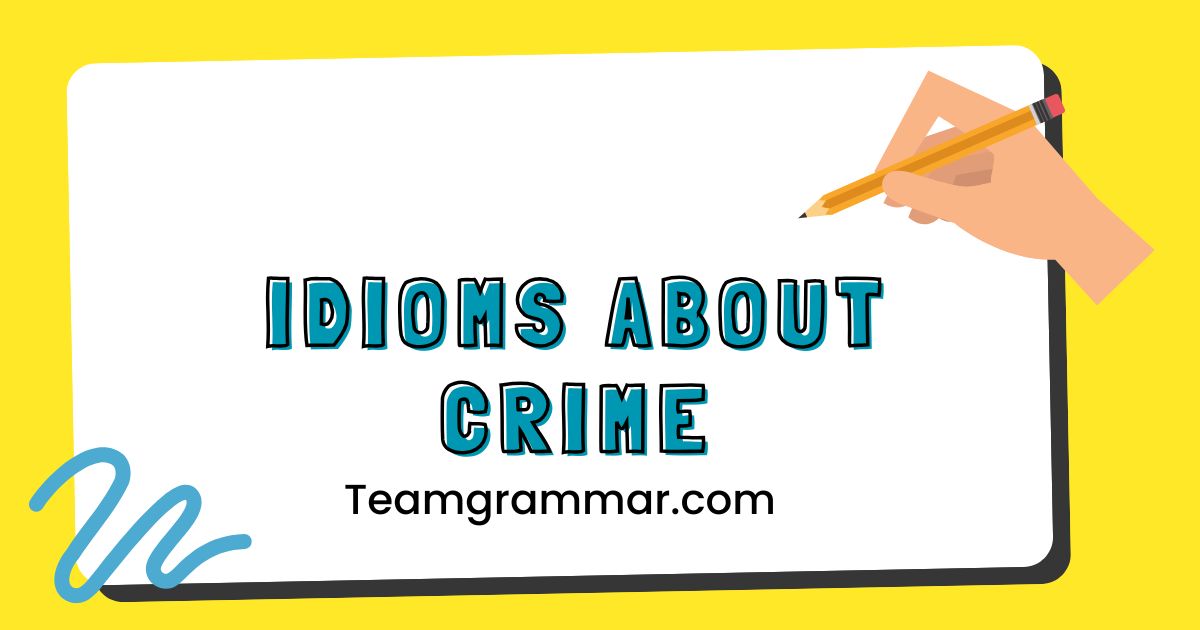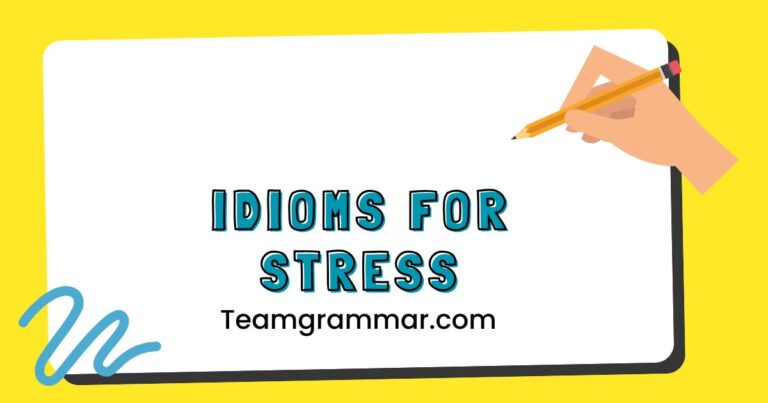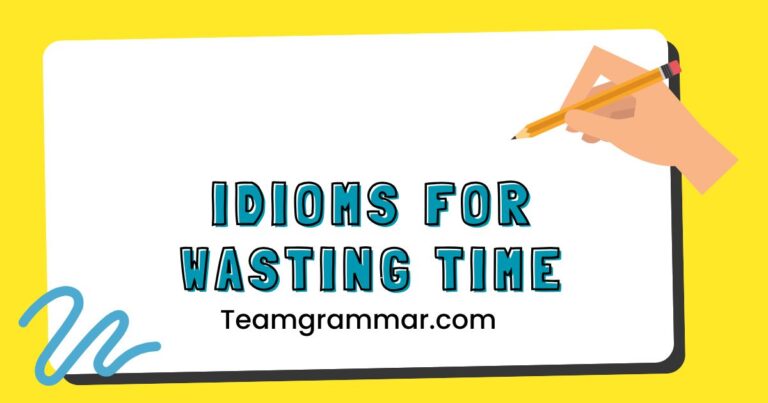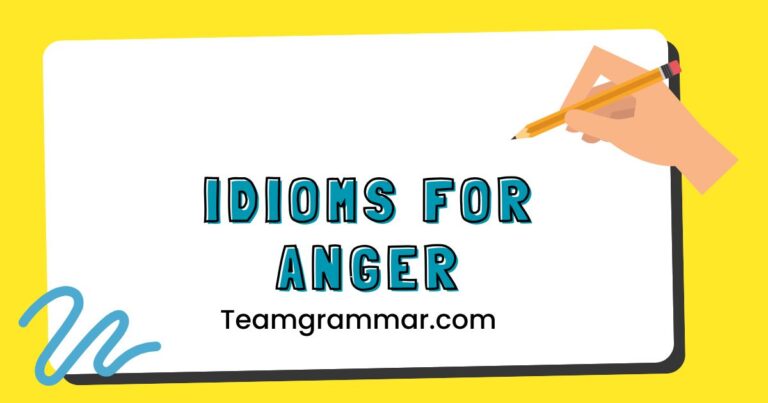33 Idioms About Crime: Understanding Criminal Language
Understanding idioms related to crime is crucial for anyone looking to improve their English comprehension, especially in contexts like news reporting, legal dramas, or crime novels. Idioms add color and depth to language, often conveying meanings that go beyond the literal definitions of the words used.
This article provides a comprehensive guide to crime-related idioms, exploring their meanings, origins, and usage. It is designed to benefit English language learners, legal professionals, and avid readers interested in deciphering the nuances of criminal jargon and everyday expressions related to illegal activities.
Table of Contents
- Definition of Crime Idioms
- Structural Breakdown of Crime Idioms
- Types and Categories of Crime Idioms
- Examples of Crime Idioms
- Usage Rules for Crime Idioms
- Common Mistakes with Crime Idioms
- Practice Exercises
- Advanced Topics in Crime Idioms
- Frequently Asked Questions
- Conclusion
Definition of Crime Idioms
Crime idioms are fixed expressions or phrases related to illegal activities, law enforcement, and the legal system. These idioms often use figurative language to describe criminal behavior, investigations, and consequences.
Understanding these idioms is essential for grasping the full meaning of conversations, news reports, and literature that deal with crime-related topics. They add a layer of cultural and contextual understanding that literal definitions alone cannot provide.
In essence, a crime idiom is a phrase where the overall meaning is different from the literal meaning of the individual words. These idioms can describe various aspects of crime, from the initial act to the final judgment.
For example, “to cook the books” doesn’t literally involve cooking; it means to manipulate financial records illegally. The ability to recognize and interpret these idioms enhances comprehension and fluency in English.
Structural Breakdown of Crime Idioms
Crime idioms can vary significantly in their structure, but they generally consist of a combination of nouns, verbs, adjectives, and prepositions. The meaning of the idiom is not readily apparent from the individual words; rather, it is derived from the phrase as a whole.
It’s essential to learn these idioms in context to fully understand their meanings and appropriate usage.
Many crime idioms are metaphorical, using imagery to convey complex ideas. For example, “caught red-handed” uses the image of someone’s hands being stained with blood to mean caught in the act of committing a crime.
Other idioms may use more abstract language, but their meanings are still figurative. Understanding the underlying metaphor or imagery can often help in remembering and using these idioms correctly.
The structural elements work together to create a cohesive, idiomatic meaning that stands apart from the literal interpretation of its components.
Types and Categories of Crime Idioms
Crime idioms can be categorized based on the specific aspect of crime they describe. Here are some common categories:
Idioms About Arrest
These idioms describe the act of being apprehended by law enforcement.
Idioms About Punishment
These idioms refer to the penalties and consequences of committing a crime.
Idioms About Guilt and Innocence
These idioms relate to determining whether someone is responsible for a crime.
Idioms About Police
These idioms describe the roles and actions of law enforcement officers.
Idioms About Illegal Activities
These idioms refer to the specific actions that constitute a crime.
Examples of Crime Idioms
Here are several examples of crime idioms, categorized by their specific context, to help illustrate their meanings and usage.
Idioms About Arrest
The following table provides examples of idioms related to arrest, along with their meanings and example sentences.
| Idiom | Meaning | Example Sentence |
|---|---|---|
| Get busted | To be arrested or caught doing something wrong. | He got busted for selling drugs. |
| Get pinched | To be arrested. | The thief got pinched trying to break into the store. |
| Be taken into custody | To be arrested and held by the police. | She was taken into custody after the robbery. |
| Read someone their rights | Inform someone under arrest of their legal rights. | The officer read him his rights before questioning him. |
| In the slammer | In jail or prison. | He’s been in the slammer for five years. |
| Behind bars | In prison. | The criminal is finally behind bars. |
| Be brought to justice | To be arrested and tried for a crime. | The murderer was finally brought to justice after years of investigation. |
| Do time | Serve a prison sentence. | He’s doing time for armed robbery. |
| Be hauled in | To be arrested and taken to a police station. | The suspect was hauled in for questioning. |
| Answer to | To be held accountable for one’s actions. | He will have to answer to the court for his crimes. |
| Face the music | To accept the consequences of one’s actions. | The corrupt official had to face the music and resign. |
| Be booked | To have one’s arrest officially recorded by the police. | After the arrest, he was booked at the local station. |
| Be locked up | To be imprisoned. | The dangerous criminal was locked up for life. |
| Be collared | To be arrested (often used informally). | The thief was collared by the security guard. |
| Be apprehended | To be caught and arrested. | The suspect was apprehended after a high-speed chase. |
| Be cuffed | To be handcuffed. | He was cuffed and taken to the police car. |
| Be taken down | To be arrested forcefully. | The drug dealer was taken down in a raid. |
| Get nicked | To be arrested (British slang). | He got nicked for shoplifting. |
| Be fitted for an orange jumpsuit | To be arrested and imprisoned (referencing prison attire). | If he keeps committing crimes, he’ll soon be fitted for an orange jumpsuit. |
| Be sent down | To be sentenced to prison (British slang). | He was sent down for ten years. |
| Be remanded in custody | To be held in custody while awaiting trial. | He was remanded in custody until his court date. |
These idioms provide colorful and concise ways to describe the process and experience of being arrested, often adding emotional or cultural context.
Idioms About Punishment
The following table presents idioms related to punishment, detailing their meanings and providing example sentences.
| Idiom | Meaning | Example Sentence |
|---|---|---|
| Pay the price | To suffer the consequences of one’s actions. | He had to pay the price for his crimes. |
| Serve time | To spend time in prison. | She served time for fraud. |
| Face the music | To accept the consequences of one’s actions (often negative). | He knew he’d have to face the music when the truth came out. |
| Get what’s coming to you | To receive the deserved punishment or consequences. | After all his lies, he finally got what’s coming to him. |
| Be brought to book | To be held accountable for one’s actions. | The corrupt officials were finally brought to book. |
| Feel the pinch | To experience financial hardship or punishment. | After the heavy fine, he really felt the pinch. |
| Take the rap | To accept blame or punishment for someone else’s actions. | He took the rap for his friend to protect him. |
| Get a slap on the wrist | To receive a mild punishment. | He only got a slap on the wrist for the minor offense. |
| Throw the book at someone | To impose the maximum possible punishment. | The judge threw the book at him for the serious crime. |
| Be given a life sentence | To be sentenced to prison for the remainder of one’s life. | He was given a life sentence for the brutal murder. |
| Be sent up the river | To be sent to prison (slang). | He was sent up the river for armed robbery. |
| Dance to someone’s tune | To be controlled or manipulated by someone, often leading to negative consequences. | He danced to the mob boss’s tune and ended up in prison. |
| Be made an example of | To be punished severely as a warning to others. | They made an example of him to deter others from committing similar crimes. |
| Reap what you sow | To experience the consequences of one’s actions (often negative). | He lied and cheated, and now he’s reaping what he sowed. |
| Pay one’s debt to society | To serve one’s time in prison and atone for crimes. | After years in prison, he finally paid his debt to society. |
| Be put away | To be sent to prison. | The serial killer was finally put away for life. |
| Get a taste of your own medicine | To experience the same negative treatment one has inflicted on others. | The bully got a taste of his own medicine when he was finally stood up to. |
| Be held accountable | To be responsible for one’s actions and face the consequences. | The company executives will be held accountable for the environmental damage. |
| Toe the line | To conform to rules or standards to avoid punishment. | If you want to stay out of trouble, you need to toe the line. |
| Be brought to justice | To be arrested and tried for a crime, leading to punishment if found guilty. | The perpetrators of the fraud were finally brought to justice. |
| Face the consequences | To accept and deal with the results of one’s actions, often negative. | He has to face the consequences of his decisions. |
These idioms capture the various aspects of punishment, from immediate consequences to long-term imprisonment, providing a rich tapestry of expressions related to justice and retribution.
Idioms About Guilt and Innocence
The following table provides idioms related to guilt and innocence, along with their meanings and example sentences.
| Idiom | Meaning | Example Sentence |
|---|---|---|
| Caught red-handed | Caught in the act of committing a crime. | He was caught red-handed stealing from the store. |
| Have clean hands | To be innocent of wrongdoing. | The politician claimed to have clean hands in the scandal. |
| Be in the clear | To be free from suspicion or blame. | After the investigation, he was in the clear. |
| Be off the hook | To be released from an obligation or punishment. | He was off the hook when the witness recanted. |
| Scot-free | To escape punishment or consequences. | The criminal got away scot-free due to a technicality. |
| Walking a tightrope | To be in a precarious or risky situation, often involving guilt or innocence. | He was walking a tightrope trying to hide his involvement. |
| Under a cloud | Under suspicion or disgrace. | He has been under a cloud since the accusations surfaced. |
| Smell a rat | To suspect something is wrong or dishonest. | I smelled a rat when he couldn’t explain where the money went. |
| Cook the books | To falsify financial records. | The company was cooking the books to avoid paying taxes. |
| Pull the wool over someone’s eyes | To deceive or trick someone. | He tried to pull the wool over our eyes, but we saw through his lies. |
| On the up-and-up | Honest and legitimate. | The business deal seemed on the up-and-up. |
| Have something to hide | To have a secret that one wants to keep hidden. | He seemed nervous, like he had something to hide. |
| Above board | Legitimate and honest. | The transaction was completely above board. |
| Innocent as a lamb | Completely innocent. | She looks as innocent as a lamb, but she’s very cunning. |
| Guilty as sin | Clearly guilty. | He looked as guilty as sin when the evidence was presented. |
| Beyond a reasonable doubt | The standard of proof required to convict someone in a criminal trial. | The jury had to be convinced beyond a reasonable doubt that he was guilty. |
| Cast a shadow of doubt | To create uncertainty or suspicion about something. | The new evidence cast a shadow of doubt on his alibi. |
| Give someone the benefit of the doubt | To assume someone is innocent until proven guilty. | I’ll give him the benefit of the doubt for now. |
| Look the other way | To ignore wrongdoing or illegal activity. | The police officer looked the other way when he saw the minor infraction. |
| Turn a blind eye | To pretend not to notice something, often something wrong. | The manager turned a blind eye to the employee’s misconduct. |
| Whiter than white | Completely innocent and pure. | He claimed his financial dealings were whiter than white. |
These idioms capture the nuances of guilt and innocence, from being caught in the act to being suspected of wrongdoing, providing a comprehensive vocabulary for discussing these complex concepts.
Idioms About Police
The following table provides idioms related to police, along with their meanings and example sentences.
| Idiom | Meaning | Example Sentence |
|---|---|---|
| The long arm of the law | The far-reaching power and authority of the police or legal system. | Eventually, the long arm of the law caught up with him. |
| Cop a plea | To plead guilty to a lesser charge in exchange for a lighter sentence. | He decided to cop a plea to avoid a lengthy trial. |
| Undercover cop | A police officer working in disguise to catch criminals. | The undercover cop infiltrated the drug ring. |
| Law and order | A state of affairs in which laws are obeyed and public order is maintained. | The government is committed to maintaining law and order. |
| By the book | According to the rules and regulations. | The officer did everything by the book during the investigation. |
| Badge of honor | Something that is regarded as a mark of pride or distinction, often earned through difficult or challenging work. | For the detective, solving the case was a badge of honor. |
| Read someone the riot act | To scold or reprimand someone severely. | The police chief read the officers the riot act after the incident. |
| On the beat | The area or route that a police officer patrols. | The officer has been on the beat in this neighborhood for years. |
| The fuzz | A slang term for the police. | We need to leave before the fuzz shows up. |
| To be grilled | To be intensely questioned by the police or other authorities. | The suspect was grilled by the detectives for hours. |
| To be a person of interest | Someone who is being investigated by the police but is not yet a suspect. | He is currently a person of interest in the case. |
| Crack down on | To take strict measures to suppress or punish illegal or undesirable activities. | The police are cracking down on street crime. |
| To stake out | To keep a place under surveillance, usually by the police. | The detectives staked out the suspect’s apartment. |
| To bust a gut | To work extremely hard, often in the context of law enforcement. | The officers busted a gut trying to solve the case. |
| Keep the peace | To maintain public order and prevent disturbances. | The police are there to keep the peace. |
| Serve and protect | The duty of the police to serve the community and protect its citizens. | The police take their oath to serve and protect seriously. |
| To enforce the law | To ensure that laws are obeyed. | The police are responsible for enforcing the law. |
| To bring to justice | To arrest and prosecute someone for a crime. | The police worked tirelessly to bring the criminals to justice. |
| On the force | Employed as a police officer. | He’s been on the force for over 20 years. |
| Hot on the trail | Actively pursuing someone or something. | The detectives were hot on the trail of the suspect. |
| Dirty cop | A police officer who is corrupt or takes bribes. | The investigation revealed that several officers were dirty cops. |
These idioms provide a vivid picture of the roles, responsibilities, and challenges faced by law enforcement, adding depth and color to discussions about policing and justice.
Idioms About Illegal Activities
The following table provides idioms related to illegal activities, along with their meanings and example sentences.
| Idiom | Meaning | Example Sentence |
|---|---|---|
| Bend the rules | To deviate from or ignore the rules, often for personal gain or convenience. | He was willing to bend the rules to get the deal done. |
| Cross the line | To do something unacceptable or illegal. | He crossed the line when he started stealing from the company. |
| Push the envelope | To test the limits of what is acceptable or legal. | The company was pushing the envelope with its aggressive marketing tactics. |
| Skate on thin ice | To be in a risky or precarious situation, often involving illegal activities. | He’s skating on thin ice with his gambling debts. |
| Wash money | To conceal the illegal origin of money by passing it through a series of transactions. | The criminals were washing money through offshore accounts. |
| Rip someone off | To cheat or swindle someone. | He ripped me off by selling me a fake watch. |
| Be a front for | To be a business or organization used to conceal illegal activities. | The restaurant was a front for a gambling operation. |
| Run a racket | To operate an illegal or dishonest scheme. | The gang was running a racket selling stolen goods. |
| On the take | Accepting bribes or engaging in corruption. | The corrupt official was on the take. |
| Deal under the table | To conduct business or transactions secretly and often illegally. | They were dealing under the table to avoid paying taxes. |
| A shady deal | A transaction or agreement that is questionable or dishonest. | The business arrangement seemed like a shady deal. |
| Have a hand in the till | To steal from one’s employer. | The accountant was caught having a hand in the till. |
| Fiddle the accounts | To manipulate or falsify financial records. | He was accused of fiddling the accounts to hide the losses. |
| Go straight | To stop engaging in criminal activities and live an honest life. | He promised to go straight after his release from prison. |
| Lead astray | To tempt someone into doing something wrong or illegal. | The older boys led him astray into a life of crime. |
| Cook up a scheme | To devise a plan, often involving illegal or dishonest activities. | They cooked up a scheme to defraud the investors. |
| Be in cahoots | To be in partnership or conspiracy, often for illegal purposes. | The two companies were in cahoots to fix prices. |
| Make a killing | To make a large profit, often through risky or illegal means. | They made a killing on the stock market by insider trading. |
| Be on the fiddle | To be engaged in dishonest or fraudulent activities (British slang). | He was on the fiddle, claiming expenses he didn’t incur. |
| Money laundering | The process of concealing the origins of illegally obtained money. | The investigation focused on money laundering activities. |
| On the wrong side of the law | Engaged in illegal activities. | He’s always been on the wrong side of the law. |
These idioms vividly describe various illegal activities and dishonest schemes, providing a rich vocabulary for understanding and discussing crime-related topics.
Usage Rules for Crime Idioms
When using crime idioms, it’s important to consider the context and audience. Some idioms are more formal and appropriate for professional settings, while others are slang and better suited for informal conversations.
Always ensure that the idiom fits the tone and register of the situation.
Also, remember that idioms are fixed expressions, so you cannot change the words or word order without altering the meaning or making the phrase nonsensical. For example, you can say “caught red-handed,” but not “caught blue-handed.” The phrase must be used as it is traditionally known.
Pay attention to prepositions and articles within the idiom, as they are crucial to maintaining the correct meaning.
Common Mistakes with Crime Idioms
One common mistake is misinterpreting the literal meaning of the words in the idiom. For example, someone might think “cook the books” involves actual cooking, rather than financial manipulation.
Always remember that the meaning of an idiom is figurative and not based on the literal definitions of its components.
Another frequent error is using the wrong form of the idiom. Idioms are fixed expressions, so changing the words or word order can alter the meaning or make the phrase incorrect.
Here are some examples of correct and incorrect usage:
| Incorrect | Correct |
|---|---|
| He was caught red hand. | He was caught red-handed. |
| She has clean the hands. | She has clean hands. |
| They brought him by the book. | They brought him to book. |
It’s also important to be aware of the connotations of different idioms. Some idioms may be more informal or slang than others, and using them in inappropriate contexts can make your language sound awkward or unprofessional.
Always consider your audience and the overall tone of your communication when choosing which idioms to use.
Practice Exercises
Test your understanding of crime idioms with these practice exercises. Choose the correct idiom to complete each sentence.
| Question | Options | Answer |
|---|---|---|
| He was __________ stealing from the store. | A) caught blue-handed B) caught red-handed C) caught green-handed | B) caught red-handed |
| The politician claimed to __________ in the scandal. | A) have clean hands B) have dirty hands C) have no hands | A) have clean hands |
| The police are __________ on street crime. | A) cracking up B) cracking down C) cracking in | B) cracking down |
| He decided to __________ to avoid a lengthy trial. | A) cop a plea B) cop a feel C) cop an attitude | A) cop a plea |
| The company was __________ to avoid paying taxes. | A) cooking the meals B) cooking the books C) cooking the dinner | B) cooking the books |
| After all his lies, he finally __________ . | A) got what’s going to him B) got what’s coming to him C) got what’s going for him | B) got what’s coming to him |
| The officer did everything __________ during the investigation. | A) by the page B) by the book C) by the line | B) by the book |
| He’s been __________ since the accusations surfaced. | A) under a sun B) under a cloud C) under a sky | B) under a cloud |
| The two companies were __________ to fix prices. | A) in cohorts B) in cahoots C) in coots | B) in cahoots |
| He __________ when he started stealing from the company. | A) crossed the street B) crossed the line C) crossed the border | B) crossed the line |
Here are some more challenging practice exercises:
| Question | Options | Answer |
|---|---|---|
| The criminals were __________ through offshore accounts. | A) washing cars B) washing clothes C) washing money | C) washing money |
| We need to leave before __________ shows up. | A) the fuzz B) the buzz C) the muss | A) the fuzz |
| He’s __________ with his gambling debts. | A) skating on thick ice B) skating on thin ice C) skating on no ice | B) skating on thin ice |
| They were __________ to avoid paying taxes. | A) dealing above the table B) dealing on the table C) dealing under the table | C) dealing under the table |
| The police are there to __________ . | A) keep the world B) keep the peace C) keep the war | B) keep the peace |
| He __________ by selling me a fake watch. | A) tripped me off B) ripped me off C) slipped me off | B) ripped me off |
| The restaurant was __________ a gambling operation. | A) a front for B) a back for C) a side for | A) a front for |
| He promised to __________ after his release from prison. | A) go crooked B) go straight C) go bent | B) go straight |
| The accountant was caught __________ . | A) having a hand in the till B) having a foot in the till C) having a head in the till | A) having a hand in the till |
| Eventually, __________ caught up with him. | A) the short arm of the law B) the long arm of the law C) the fat arm of the law | B) the long arm of the law |
Advanced Topics in Crime Idioms
For advanced learners, exploring the origins and etymology of crime idioms can provide deeper insights into their meanings and cultural significance. Many
delve into the historical context behind these expressions, tracing how they evolved over time and across different regions.
For instance, understanding the historical use of “the long arm of the law” can reveal how the concept of legal authority has been perceived and exercised throughout history.
Additionally, analyzing crime idioms in literature and media can offer a rich understanding of how these expressions are used to create atmosphere, develop characters, and convey themes. Consider how crime novels or legal dramas use idioms to add authenticity and depth to their narratives.
This analysis can enhance both your language skills and your appreciation for the art of storytelling.
Frequently Asked Questions
Conclusion
Mastering crime idioms can significantly enhance your English language skills and cultural understanding. By learning these expressions, you’ll be better equipped to comprehend and communicate effectively in various contexts, from casual conversations to professional settings.
Keep practicing and expanding your knowledge of idioms, and you’ll find yourself becoming more fluent and confident in your use of the English language.







